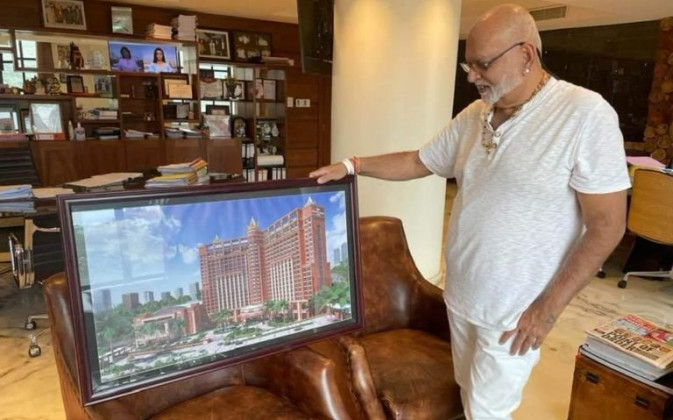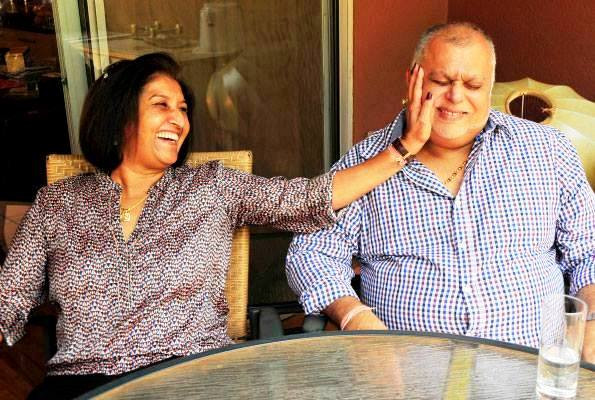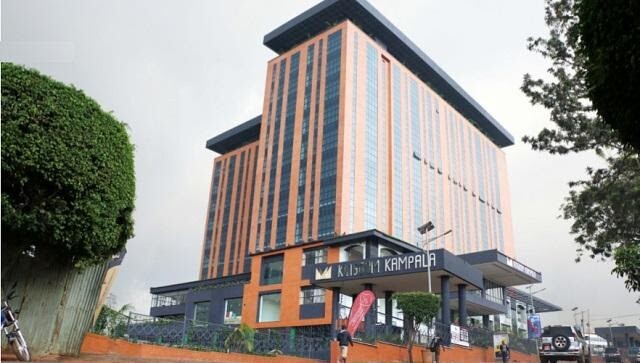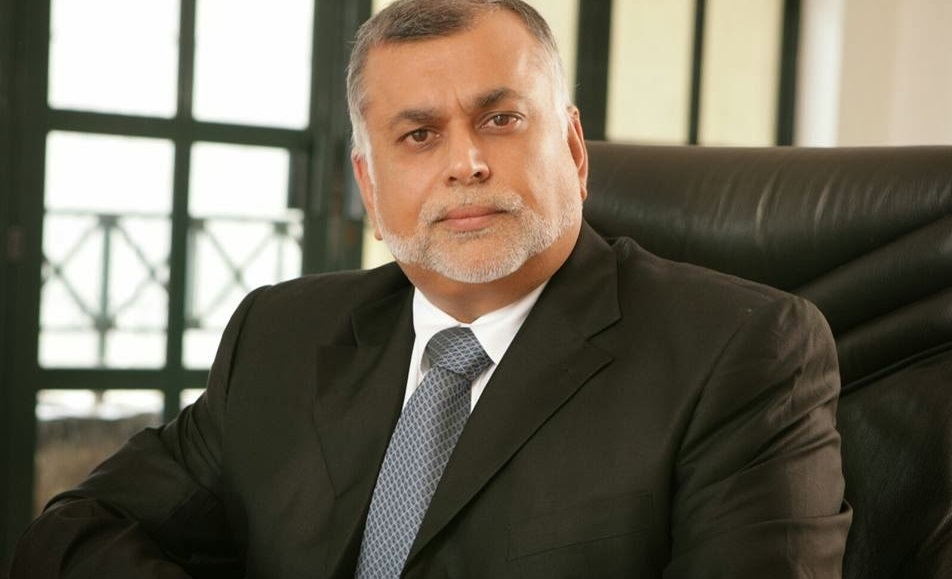In Uganda, the land of beauty and eternal sun, Sudhir Ruparelia is something of a legend. Everyone seems to know him – from the stern-faced immigration officials at the Entebbe International Airport to the gregarious taxi driver and the beguiling sales lady at the local convenience store.
“Everyone knows Sudhir Ruparelia is the richest man in Uganda. He owns half of Kampala’s business district and the biggest hotels,” a taxi driver on Kampala road enthuses. “I don’t know how he did it, but he owns everything. He’s like the Lord of Kampala.”
Ruparelia, a boisterous 65-year old tycoon, is quick to dismiss these rumors as mere hearsay. “I’m successful,” he says, “but I don’t own half of Kampala. Reports of my property holdings are grossly overrated.”
He does, however, own large chunks of Kampala, Uganda’s capital city. Ruparelia owns close to 300 prime residential and commercial properties in some of Kampala’s swankiest neighbourhoods. He’s the largest individual property owner in Uganda, according to the Uganda Land Alliance. In fact, President Museveni once said Ruparelia’s real estate concerns rake in as much money as the entire country earns from exporting tea and coffee –about $400 million a year.
Some of his assets include the landmark Crane Chambers located in Kampala’s central business district and the prestigious Kingdom Kampala Plaza, home to the offices of over 350 of Uganda’s Members of Parliament among other mega buildings in Kampala.
His Ruparelia group also owns some of the most prestigious hotels in Uganda, including the Kabira Country Club, Speke Hotel, and the 5-star Speke Resort & Conference Center in Munyoyo, outside Kampala. The Speke Resort sits on 70 acres and is worth an estimated $150 million. It was the venue for the Commonwealth Conference in November 2007, an event that brought together 53 heads of state. It has a marina, an equestrian center, and the only Olympic-sized swimming pool in East Africa.
But how did Sudhir make it?

It wasn’t always smooth sailing for Uganda’s property baron. Ruparelia was born in 1956 in Kabatoro, Kasese, a small town in western Uganda. His parents owned three successful retail outlets in Kabatoro, and Ruparelia honed his first business skills working with his parents. In August 1972, when Ruparelia was only 16, then-President Idi Amin expelled all Asians and Ugandans of Asian descent living in the country. It was an ethnic cleansing of sorts, with the Ugandan government claiming that the Indians were “hoarding wealth and goods to the detriment of indigenous Africans and “sabotaging” the Ugandan economy.”
“It was a frantic atmosphere, so my parents, who had British passports, decided to relocate to the UK. We were supposed to join them. After queuing for long hours at the British High Commission, we obtained the necessary permits and I went to the U.K,” Ruparelia reminisces.
But he did not live with his parents in the UK. They had gone to the north but the young Ruparelia headed south, nearer to London. “I wanted to be my own man, free from parental control. I wanted to achieve my own things and live my own dreams,” Ruparelia says. “I had two priorities: I wanted to feed myself and I wanted to complete my education. But the former was more important than the latter.”
Ruparelia took a job in a factory making test tubes which were used for experiments in chemistry laboratories. With the money he earned, he was able to pay rent for his room and buy food. He also enrolled to do his O- levels and subsequently went on to do his A-levels in accountancy-related subjects. His initial plan was to become an accountant, but Ruparelia realized he enjoyed the thrill of making money even more. That marked the end of his formal education.
“At that time, while I was studying, I was holding two or three jobs at the same time,” he explains. “I remember I worked night shifts in a supermarket shelving cans and boxes. I also drove taxis during the weekend.”

As Sudhir recounts his taxi-driving days, his eyes light up gleefully: “The beautiful thing is that the government of Lady Thatcher had deregulated the taxi sector and so private individuals were allowed to run their own taxis in the suburbs and over long distances. A central called in taxis over radio-phone. It was fun because there was an aspect of adventure to it. You never knew who you were picking up. I ferried everyone from drug lords to fashionable girls who were going on their dates. Sometimes they would give me a big tip.”
By 1974, Sudhir had saved up enough money to buy a house. He was only 18. The next few years were the most definitive in his life. In 1977, he got married to Jyostna, a banker. They lived in the U.K. and he kept doing odd jobs and saving religiously, but the young, restless businessman was itching to return to his homeland. “I loved the UK, but my heart was in Uganda,” Ruparelia says.
He was keeping tabs on developments in Uganda from his base in the UK. Whenever some prominent Ugandan businessman came to London to procure items for the government or the army, Ruparelia heard about it. There were legions of opportunities in Uganda and Ruparelia could not stand the fact that he was missing out on a lot of them.
By 1985, he had had enough. He returned to Uganda with $25,000 he had saved. When he landed, he started scouting for opportunities. He discovered that basic commodities were relatively scarce in the country. Consequently, he started importing salt from neighbouring Kenya. He also imported commodities like sugar and cigarettes from traders at the Mombasa ports.
There were no alcoholic beverage manufacturing plants in Uganda at the time, and Uganda was largely dependent on beer imports. Ruparelia approached East African Breweries Limited of Kenya, struck a deal and cornered the sole distributorship rights in Uganda for some of Kenya’s premium beer brands, including White Cap, Tusker and Pilsner. He became the largest supplier of alcoholic beverages to Kampala.

Many of Ruparelia’s customers were foreigners who preferred to pay in foreign currency. Spotting yet another opportunity, he soon started a small foreign exchange business, which brought in a substantial amount of money. In 1989, President Yoweri Museveni liberalized the beer industry, and indigenous players crept forward. The government then banned the importation of beer.
Ruparelia chose instead to focus on his foreign exchange business. He opened Uganda’s first forex bureau, Crane Forex Bureau, which is still in existence and forms an integral part of the Crane Financial Empire. By 1990, Ruparelia was raking in $10,000 in daily profits, and with the money he started buying up chunks of undeveloped land and dilapidated residential and commercial structures in the largely undeveloped Central Business District of Kampala and in leafy suburbs at bargain prices.
“There are properties I acquired between 1984 and 1991 for $50,000. They are worth $12 million today,” says Ruparelia, adding that he often earned back the purchase price after just four years of renting out properties. With the rental income and his thriving forex business, Ruparelia continued to acquire more properties at low prices.
By the early 1990s, Ruparelia’s forex business eventually became so big that the banks started coming down hard on him because Crane Forex Bureau was eating substantially into their profits and their markets. So Ruparelia decided to venture into banking and applied for a banking license, which cost $1 million. Crane Bank opened its doors to the general public in 1995. Today, it is Uganda’s second-largest commercial bank in terms of customer base, profitability and return on assets, and has shareholders’ equity of $70 million.
For all his success, Ruparelia is not immune to controversy. In 2005, a Kampala Law court issued an arrest warrant for the tycoon to answer charges of causing a nuisance in Bukoto, where his Kabira country club is located. It was alleged that Ruparelia discharged sewage into a stormwater channel across a public road contrary to the country’s Public Health Act. In 2010, a Canadian business publicly alleged that Ruparelia forged a land title for his property. Ruparelia denies any wrongdoing in both instances.
“There’ll always be people who are against your success in business. But in Uganda, I enjoy a lot of goodwill. That’s what matters to me,” he says.
The Ruparelia Group has extensive interests in property, insurance, hospitality and agriculture, but Ruparelia says the two entities he holds closest to his heart are the Kampala Parents School and the Kampala International School, the primary and high schools he runs along with his wife. In 2004, Ruparelia acquired Kampala Parents School, a private co-educational primary school in the Nakawa division of Kampala. The school was dilapidated and floundering when he took over and he has since injected over $6 million into rehabilitating the infrastructure and personally sponsoring the education of several students. Students come primarily from lower-class families and they have access to some of the best educational facilities and infrastructure in all of Uganda.
“That’ll be my legacy: Education,” he says matter-of-factly. “I believe education is the bedrock of world-class aspirations. If I know that I have played my role in grooming the next generation of leaders in Uganda, I’ll be content.”
If you would like your article/opinion to be published on Uganda’s most authoritative news platform, send your submission on: [email protected]. You can also follow DailyExpress on WhatsApp and on Twitter (X) for realtime updates.



